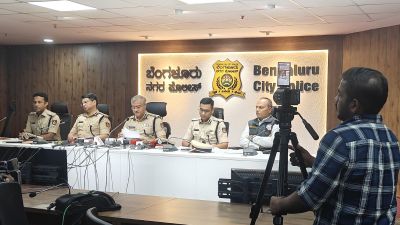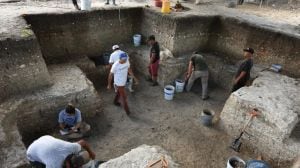Applause: Literacy to poultry, bus service to cleaning villages
Corporates, state govt departments among 14 winners for innovation that sparks off social change.

Some of the most innovative ideas and business models being put into practice by organisations in India have won recognition with the announcement of the EMPI-Indian Express Indian Innovation Awards for 2006.
From little-known government departments of some states to some of the most celebrated corporate brands, the list of this year’s is wide-ranging.
Nine organisations — among them biggies like Tata Consultancy Services and Tata Motors, and also the Water Supply & Sanitation Department of the Maharashtra government — have been selected for the gold trophy. Five others have been awarded the silver trophy.
The winners will be presented citations and trophies at a function in the third week of December.
The award, now in its second year, seeks to reward organisations — whether in the government, corporate, or development sector — which, through the implementation of unique ideas or processes, have been able to benefit a large number of people at the grassroots.
The winners were picked from more than 400 applications, which were put through a three-stage evaluation process. There were 20 organisations in the final short-list, from which 14 winners were selected.
The selection panel was headed by eminent scientist M G K Menon, and included academicians, technologists, consultants, and administrators.
The winners of the Gold trophies are:
• Karnataka State Road Transport Corporation, Bangalore: From a loss-making organisation, KSRTC turned around into a highly-efficient and profit-making enterprise through innovative use of state-of-the-art technology.
• Water Supply & Sanitation Department, Government of Maharashtra, along with participating panchayats: For initiating a self-help cleanliness drive.
• Tata Consultancy Services Ltd: For running a highly-successful computer-based adult literacy programme in multiple languages.
• Multi-Commodity Exchange of India (MCX): For pioneering advanced methods of commodity trading in the country and ensuring wide dispersion of information and transparency of prices among all stakeholders via the Internet, right from village-level and upwards.
• Keggfarms Pvt Ltd: For developing genetically-bred high-yielding village-specific poultry birds able to withstand and thrive under harsh conditions in rural India.
• MIDAS Communications Technologies: For providing cost-effective simultaneous voice and broadband data telecommunication products for rural India. The company was incubated at IIT, Chennai.
• Tata Motors: For developing Tata Ace, a safer, environment-friendly vehicle through indigenous design.
• Genpact: For having the lowest attrition level in the BPO sector and providing a chance to its fresh-from-school employees to obtain graduate degrees in their first three years of work at the company.
• L V Prasad Eye Institute, Hyderabad: For providing community eye health-care facilities to people in remote as well as urban areas by setting up Vision Centres and employing Vision Guardians at local level.
The winners of the silver trophies are:
• Larsen & Toubro Ltd: For innovative use of prefab metal scaffolding at construction sites.
• Mahindra & Mahindra: For becoming one of the lowest cost R&D units through a number of innovations, like the substitution of field trials by laboratory processes.
• Hindustan Petroleum Corporation Ltd: For using high-capacity tankers into use to save on trips and implementing an IT process that enables petrol pumps and outlets to place orders automatically as stocks go down.
• Mind Tree Consulting Ltd: For advances in Bluetooth technology and applications that put the company among the top three global players in the field.
• Tripura Forest Development & Plantation Corp Ltd: For introducing rubber plantation and crop management practices in tribal areas and marketing the communities’ rubber-based products, enabling them to earn higher and even move into permanent settlements.



- 01
- 02
- 03
- 04
- 05




























